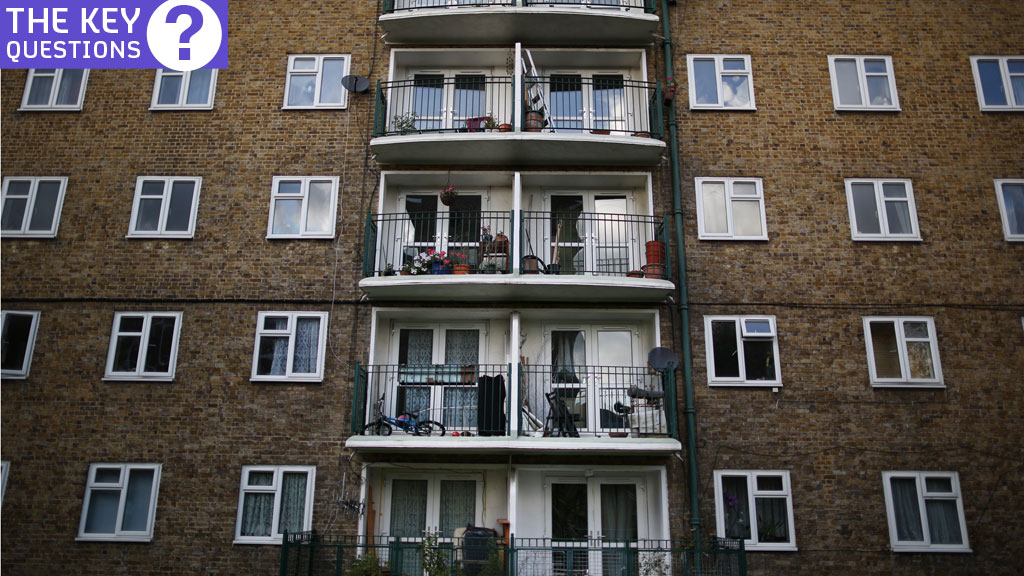The ‘bedroom tax’ – the key questions
 Ciaran Jenkins
Data Correspondent and Presenter
Ciaran Jenkins
Data Correspondent and Presenter
From April, an under-occupation penalty will be served on housing benefit claimants with a spare room or rooms. Dubbed the “bedroom tax”, Ciaran Jenkins explains how it works.

Who has to pay?
The “bedroom tax” applies to tenants in the social rented sector. If you are of working age and are deemed to be under-occupying your home, you may lose part of your housing benefit.
Who does not have to pay?
Tenants of pension age are exempt, as are those living in shared-ownership social housing.
How many people will be affected?
Around 660,000 will be subject to the penalty, around 20 per cent of social housing tenants. In parts of the north of England as many as 40 per cent of social housing tenants will be affected.
How many bedrooms am I allowed?
Each of the following will be allocated one bedroom:
An adult couple
Other adults aged 16 or over
Two children of the same sex aged under 16
Two children aged under 10 regardless of gender
Any other child under sixteen
A non-resident carer who occasionally stays the night
How much will I have to pay?
One spare room will result in a 14 per cent reduction in your benefit. Two or more spare rooms will see a 25 per cent reduction in your benefit.
I am happy to downsize my home, will I still have to pay while I wait?
Yes.
What if I cannot find a smaller home?
Most housing associations will direct you to a housing pool to search for available stock in your area. However, there is a national shortage of smaller properties, particularly one-bedroom apartments. In some areas you could wait up to eight years to be housed in a smaller home.
What are my options if I cannot pay?
You may qualify for a payment from the discretionary housing fund. Councils will decide how to allocate this money based on need. Other options, according to the government, are to take in a lodger or consider finding a property on the private rental market.
What if my children do not live with me all the time?
Separated families can only claim once for their children. If you are not the main carer of your children, if for instance they only stay with you at weekends, you will be penalised for the bedrooms they occupy.
Will I be penalised if my children study away from home?
If you have a bedroom set aside for a student you will avoid the new penalty as long as they are away less than 52 weeks per year.
I am a foster carer, will I be penalised for rooms set aside for foster children?
Yes, for benefit purposes foster children are not counted as part of the household.
What happens if a member of the household dies?
You will be protected from the penalty for a year after that person’s death.
I am disabled and need to sleep separately from my partner, do I still have to pay?
Yes, the new rules allocate one room per couple. If you are supported by a non-resident carer who stays the night, you will not be penalised for that room. If, however, your overnight carer lives with you all the time, for example a family member, you will be liable to pay.
What if I refuse to pay?
The penalty is not a tax as such in that it is collected in the form of a reduction in benefit. If you currently receive housing benefit directly, the money will be deducted automatically from your payment.
However, many tenants authorise housing associations to collect housing benefit on their behalf and simply pay the difference in rent. In these cases, tenants will be charged a higher level of rent from April to compensate for the under-occupation penalty. Refusal to pay could ultimately result in eviction from your home.
Why is the government introducing this penalty?
The government says the under-occupation penalty will help contain expenditure on housing benefit, make better use of current social housing stock, encourage benefits claimants to find work and free up more social housing properties. Speaking at prime minister’s questions on 30 January 2013, David Cameron said “we are now spending as a country £23bn on housing benefit and we have to get that budget under control.”